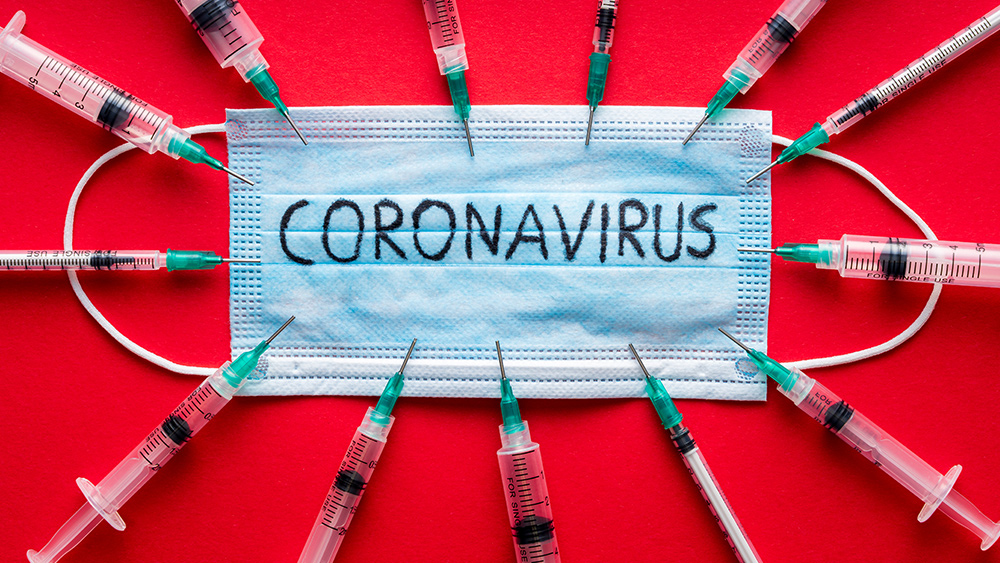Don’t make these 7 mistakes when it comes to intermittent fasting
10/22/2019 / By Zoey Sky

Intermittent fasting is popular among the health-conscious because it offers many benefits: It promotes fat and weight loss, improves insulin sensitivity, and boosts immunity. But before you try intermittent fasting, avoid these 7 common mistakes like not tracking your calorie intake so your efforts don’t go to waste.
Intermittent fasting 101
Your body uses glucose as its fuel source. Glucose comes from either incoming food or stored glycogen. But when you’re fasting, your body uses ketones or fat as fuel.
By intermittent fasting, you make your body burn fat without having to count calories. Other benefits of intermittent fasting include:
- Improving cognitive function and gut health.
- Improving the immune system.
- Improving insulin sensitivity in overweight people and promoting both fat and weight loss.
- Improving metabolic diseases like Type 2 diabetes and preserving muscle mass and function.
- Improving sleep quality.
There are different kinds of intermittent fasting, and these are the three most popular ones:
- 5:2 diet – For this method, you must consume only 500 to 600 calories for two days a week.
- 16:8 method – This method requires you to fast for 16 hours every day. For example, you must fast from noon until 8 p.m.
- Eat-stop-eat – For this method, you’re not allowed to eat anything from dinner one day until dinner the next day or a 24-hour fast at least once or twice a week.
However, if you seem stuck while intermittent fasting, you could be making one mistake (or several) that’s negating your hard work. It’s frustrating, but if you’re facing one of the seven mistakes, there’s still time to change your habits.
1. You don’t monitor your progress
Keeping a journal of what you eat and don’t eat, along with your mealtimes, will help you keep track of your fasting schedule and stick to it.
According to a study on 1,700 participants published in the American Journal of Preventive Medicine, keeping a detailed food journal can help double weight loss.
Monitoring your food intake, mood, and physical activity levels will help you figure out which area of your diet needs improvement.
2. You’re eating too much
Fasting can help you control your food intake without having to count calories. In a study published in the International Journal of Obesity and Related Metabolic Disorders, researchers observed how volunteers ate after a 36-hour fast.
The participants consumed slightly more calories at their next meal compared to those who didn’t fast. However, the results revealed that those who fasted consumed at least 2,000 fewer calories within the next two days.
Don’t assume that breaking a fast is the same as an invitation to binge-eat. If you eat a lot of high-calorie food, your body tends to store extra calories by forming fat, which delays your fasting results.
3. You’re not eating the right foods
After you fast for 18 to 24 hours, you should carefully choose the foods you eat. Junk food like pizza or alcohol will spike and crash your insulin levels. This makes your blood sugar unstable, making you hungry and moody during your fasting hours. This will also delay your results.
Once you’re done fasting, enjoy a nutritious meal that contains a lot of fiber, good fats, and protein from foods such as fish, fruits, lean meats, nuts and seeds, olive oil, and vegetables.
4. You’re consuming too much coffee
Drinking coffee after an overnight fast can curb your hunger and boost your energy levels. But drinking too much can eventually cause weight gain.
Several studies suggest that excessive caffeine intake increases blood glucose levels and prolong those increases. This means you become less insulin-sensitive and more likely to store fat.
5. You’re not monitoring your calorie intake during fasting hours
When you fast, you must consume zero (or almost zero) calories during non-eating hours.
If you don’t keep an eye on your calorie intake, consuming even a small amount of calories can affect your results. Keep a journal to avoid this mistake.
6. You’re overdoing your fast
If you’re new to intermittent fasting, don’t attempt a 24-hour fast on your first day. Start gradually with a smaller fasting window.
As you adjust to intermittent fasting, gradually increase your fasting window. Try the 16:8 method if you need an effective and sustainable fasting schedule.
7. You’re not making positive lifestyle changes
Fasting is only one factor in your overall health. For best results, manage your stress levels, get eight hours of quality sleep each night, and follow a balanced diet.
Having good habits will make your fast more manageable and offer more lasting benefits.
Take note that intermittent fasting doesn’t always work for everyone. If you’re new to fasting, try it for 30 days before you decide if you want to continue it for a longer period.
Should you experience any negative side effects while fasting, eat something and consult your physician before continuing.
Sources include:
Submit a correction >>
Tagged Under:
blood sugar, calorie intake, coffee, diabetes, Diets, fasting, fat loss, insulin sensitivity, intermittent fasting, mental health, metabolism, nutrients, nutrition, prevention, proper nutrition, sleep, slender, stress management, weight gain, weight loss, well-being
This article may contain statements that reflect the opinion of the author
RECENT NEWS & ARTICLES
ImmuneSystem.News is a fact-based public education website published by Immune System News Features, LLC.
All content copyright © 2018 by Immune System News Features, LLC.
Contact Us with Tips or Corrections
All trademarks, registered trademarks and servicemarks mentioned on this site are the property of their respective owners.





















